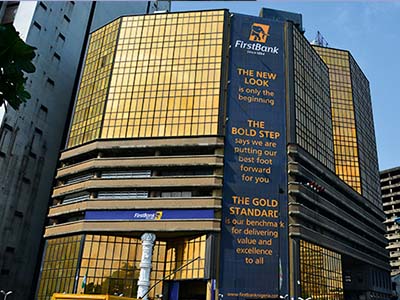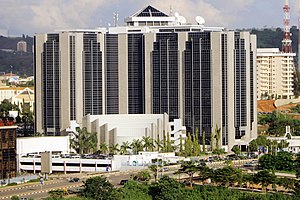Amid acute foreign exchange scarcity, the Central Bank of Nigeria (CBN) has finally lifted the foreign exchange restriction ban placed by a former governor of the bank, Godwin Emefiele on the importation of 43 items.
The apex bank lifted the restriction in a statement issued by the Director, Corporate Communications Department, Isa AbdulMumin on Thursday, Ocotber 12, 2023.
According to the central bank, it will also boost liquidity in the Nigerian Foreign Exchange Market and intervene from time to time, stating that interventions will decrease as liquidity improves.
According to him, this significant change has been made in the foreign exchange market policy.
Importers who were previously restricted from purchasing foreign exchange for 43 specific items, as outlined in the 2015 Circular referenced as TED/FEFPC/GEN/O1/010 and its addendums, are now allowed to participate in the Nigerian Foreign Exchange Market to buy foreign currency for their transactions.
The decision of the central bank decision to lift the ban on 43 items signifies a major step in resolving Nigeria’s forex crisis as most critics had called on the CBN under Emefiele to lift it.
The 43 banned items include a list of imports that were not allowed access to forex from official sources since 2015.
However, some of the items remain on the ban list of customs and it is unclear if they will be funded for forex purchases.
It is also unclear how much demand this will drive to the official I&E window and if the central bank has the capacity to meet this demand in the short term until liquidity returns as it claimed.
As of October 2021, the Central Bank of Nigeria (CBN) had restricted access to Forex from FX market for the following 43 items: Rice, cement, Margarine, Palm kernel, palm oil products and vegetable oils, Meat and processed meat products and Vegetables and processed vegetable products.
Others are: Poultry and processed poultry products, Tinned fish in sauce (Geisha)/sardines, Cold rolled steel sheets, Galvanized steel sheets, Roofing sheets, Wheelbarrows, Head pans, Metal boxes and containers, Enamelware, Steel drums, Steel pipes, Wire rods (deformed and not deformed), Iron rods and reinforcing bars.
Also included on the list were: Wire mesh, Steel nails, Security and razor fencing and poles, Wood particle boards and panels, Wood fiberboards and panels, Plywood boards and panels, Wooden doors, Toothpicks, Glass and glassware, Kitchen utensils, Tableware, Tiles-vitrified and ceramic.
Textiles, Woven fabrics, Clothes, Plastic and rubber products, polypropylene granules, cellophane wrappers and bags, Soap and cosmetics, Tomatoes/tomato pastes, Eurobond/foreign currency bond/ share purchases, Piston crowns, Ball bearings, High voltage cables, Transformers/switch gears and Gas cylinders were also on list.
AbdulMumin said the CBN is actively working to address the existing backlog of foreign exchange transactions, and the CBN is currently engaged in ongoing discussions with various stakeholders to find solutions and facilitate the clearance of this backlog.
A long-term goal of the CBN he added is to establish a unified foreign exchange market, by simplifying and streamlining the FX market in Nigeria.
The CBN he stated is in consultation with various market participants to work towards the achievement of this goal, which would lead to a more cohesive and efficient foreign exchange market in the country.
In trying to maintain price stability within the country, AbdulMumin said the CBN periodically injects funds into the Nigerian Foreign Exchange Market to enhance liquidity.
As market conditions improve and become more stable, the frequency and scale of these interventions by the CBN he said will decrease over time.
The statement reads: the Central Bank of Nigeria (CBN) will continue to promote orderliness and professional conduct by all participants in the Nigerian Foreign Exchange Market to ensure market forces determine exchange rates on a Willing Buyer – Willing Seller principle.
He said: “The CBN reiterates that the prevailing Foreign Exchange (FX) rates should be referenced from platforms such as the CBN website, FMDQ, and other recognised or appointed trading systems to promote price discovery, transparency, and credibility in the FX rates.
ALSO READ:NGX Requests Govt’s Action On Pension Reforms, Capital Control, Others For Market Development
As part of its responsibility to ensure price stability, the CBN will boost liquidity in the Nigerian Foreign Exchange Market by interventions from time to time. As market liquidity improves, these CBN interventions will gradually decrease.
He added: “Importers of all the 43 items previously restricted by the 2015 Circular referenced TED/FEFPC/GEN/O1/010 and its addendums are now allowed to purchase foreign exchange in the Nigerian Foreign Exchange Market.
“The CBN is committed to accelerating efforts to clear the FX backlog with existing participants and will continue dialogue with stakeholders to address the issue.”
The CBN has set as one of its goals the attainment of a single FX market. Consultation is ongoing with market participants to achieve this goal. Participants and the general public are to be guided by the above.
However, the forex turnover in the official foreign exchange market has struggled to reach the $300 million mark, a figure last seen during the initial days of forex unification.
This highlights the level of disinterest forex traders have in Nigeria’s official exchange rate market.
A detailed analysis reveals that the average daily turnover in the Investor and Exporter (I&E) window, where official forex trades occur, has hovered slightly above $100 million since the introduction of the unification policy.











